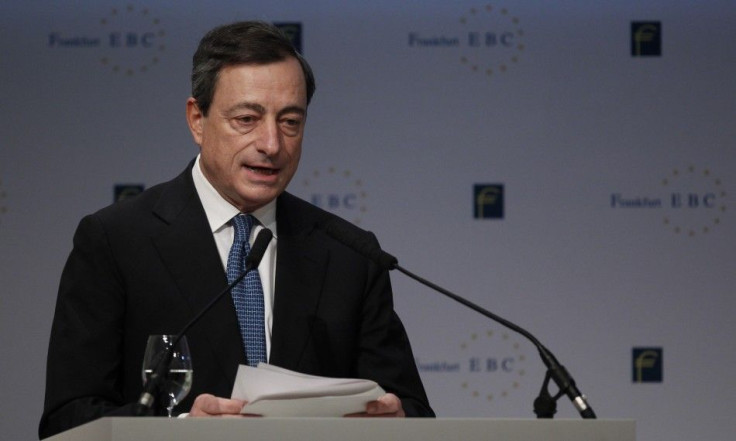Credit Rating of Europe's Bailout Fund Rests on Germany: S&P

The top credit rating of Europe's bailout fund depends on additional financial backing from Germany and the other three remaining AAA-rated Eurozone countries, Standard & Poor's said on Friday.
Also known as the European Financial Stability Facility, the fund has its AAA rating at risk after S&P stripped two of its guarantors, France and Austria, of their top credit ratings.
If downgraded, the EFSF could face higher borrowing costs, reducing its firepower to rescue troubled countries in the region.
If you have a greater commitment from the other countries, then the EFSF could retain its AAA rating, John Chambers, the chairman of S&P's sovereign-rating committee, told Reuters Insider in an interview.
If you've lost two of the six AAA guarantors, either they need to increase the backing from the four remaining AAA guarantors or they need to raise some cash buffers, Chambers said.
Another option would be that the fund raises collateral to cover its outstanding obligations.
Germany and France, the two largest Eurozone economies, are the main guarantors of the EFSF.
Chambers also said the European Central Bank's recent measures to increase liquidity to banks promoted a substantial monetary easing in the Eurozone, which was good news for the ratings.
Some banks may have used the low-cost money from the ECB to invest in government bonds, he added.
Eurozone banks received almost half a trillion euros in the ECB's first-ever injection of three-year liquidity last month. Analysts have been watching for signs that banks would use this to buy bonds, especially those issued by fiscally troubled Eurozone countries.
A stellar Spanish bond auction this week led some to believe that some of that money had indeed made its way into the sovereign-debt market.
Chambers' comments contrast with recent comments from Fitch Ratings, which said this week the Eurozone debt crisis will not be solved without more active engagement of the ECB.
(Reporting by Walter Brandimarte and Burton Frierson; Editing by Jan Paschal and Carol Bishopric)
© Copyright Thomson Reuters 2024. All rights reserved.












